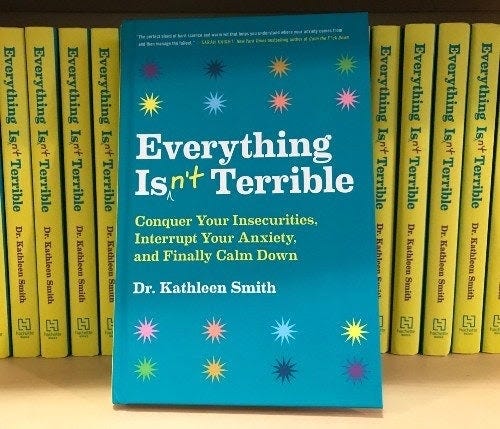Hi all! I decided to let all subscribers access this one, since I think it’s a great question. Do consider supporting the newsletter if you want more posts like this. - K
Q: How can I work on distance and loss of self I’ve observed when I’m with my husband’s family?
A: I love this question. It already demonstrates a shift in thinking. A person could ask, “Why is my husband’s family always leaving me out?” Or “How do I get my husband to get his family to behave differently around me?” There’s already some “self “in this question.
Here’s a question for everyone: What happens when you bump up against the togetherness of another group? That could be your partner’s family, a workplace you’ve just joined, your old friend’s new friend group, or the cool moms who cluster together at basketball practice. In my upcoming book, I wrote about a woman who humorously bumps up against the togetherness in her new retirement community.
Most of the time, we only do a couple of things:
We keep our distance.
We try to be what they want us to be.
We try to get them to be what we want them to be.
We complain to others about the togetherness.
How do you hold on to your own individuality, while also recognizing that some amount of togetherness (the drive to think and act similarly) is to be expected in a group? Especially a family? I think part of the practice is learning to get comfortable with being on the outside a bit. The outside position isn’t always an uncomfortable one. At times it’s quite useful. You might find that it’s easier to think for yourself when you are with your partner’s family than with your own.
But when it is uncomfortable, that’s when you know it’s an opportunity for switching things up. For not doing what you’d normally do to get comfortable (i.e. distancing).
Bowen theory focuses on the importance of building person-to-person relationships with key people in a system. Not to change people, but to create opportunities to see your own reactivity and operate a little more thoughtfully.
Rather than focusing on how you relate to the group as a whole, consider if there are one or two people in this family with whom you’d like to start having more meaningful contact. Do you make an effort to be curious about their thinking, interests, and challenges? Do you speak up about your own? And can you manage to not rely on your spouse to facilitate this contact or be a buffer?
This kind of person-to-person contact can really dial down the sensitivity people have to each other’s individuality. When people can see that you aren’t trying to change them, your own individuality may seem less like a threat to them.
Since questions are usually better than answers, let me leave everyone with a few:
When I do find myself in an outside position (maybe in a triangle), what is my typical response?
When anxiety goes up, how do I try to change the individuality of others?
When encountering a new group, when have I tried to be what others want me to be?
When might it be useful to move towards people, rather than complaining about them from the outside?
Where do I see opportunities for working on person-to-person relationships, rather than trying to get a group to function a certain way?
When have I tried to pull others to my corner (i.e. a partner, a friend, a colleague) when I have felt on the outside?
I’m going to be writing more about this next week, so stay tuned.
News from Kathleen
How to support my work:
Forward or share this newsletter with others who might be interested.
Sign up for a paid subscription, so I can decide more time to the newsletter.
Want a signed, personalized copy of my next book, TRUE TO YOU? You can preorder it from my neighborhood bookstore, East City Bookshop. I’ll also have some bonus materials available for newsletter subscribers who preorder. More on that soon!
Want to read more of my writing? Get my book, Everything Isn't Terrible, from Amazon, Barnes and Noble, or your local bookstore (best option).
Want a free anxiety journal with the book? Calming Down & Growing Up: A 30 Day Anxiety Journal includes thirty daily prompts to help you reflect on and respond to your anxious behaviors. To receive a copy, just email me your receipt of Everything Isn’t Terrible.
Email me if you’re interested in Bowen theory coaching or want me to speak to your group or workplace. Follow me on Linkedin, Facebook, or Instagram.
Want to learn more about Bowen theory? Visit the Bowen Center’s website to learn more about their conferences and training programs.







Kathleen, from time to time I feature authors whose interests align with mine on the spectrum of mental health and creativity, with a focus on ways to manage doubt. I'd like to interview you for an upcoming issue of Doubt Monster. Buy links to your books would be included. Let me know if you're interested.